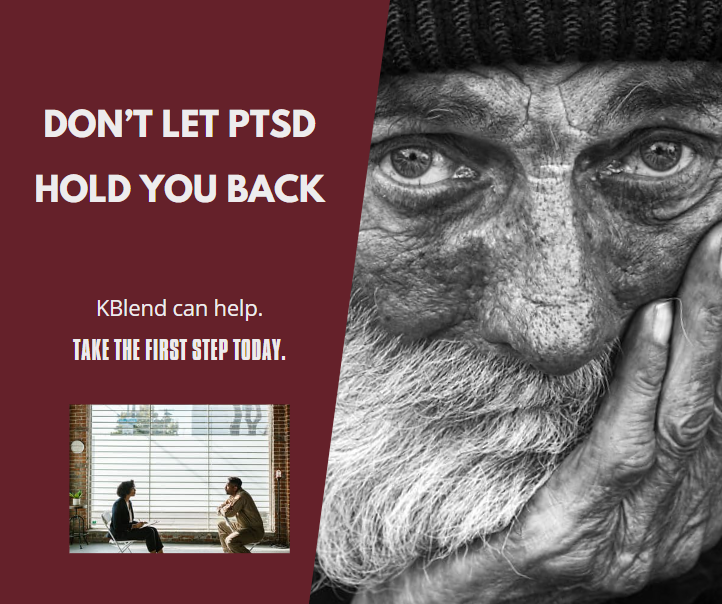
PTSD Renewal: Breaking the Illusion of Safety
PTSD and the Illusion of Safety
PTSD convinces us that feeling nothing is safer than feeling pain. We sanitize our environments, avoid people, and strip life down to what feels controllable. On the surface it looks like safety—but in reality, it is the illusion of safety. Life shrinks smaller and smaller until nothing feels safe, not even ourselves.
"Numbness is not protection—it is prison."
Numbness vs. Living
Living in “fight mode” leaves emotions muted, relationships strained, and meaning lost. Research confirms that PTSD alters brain circuits involved in fear and memory, keeping the body trapped in survival mode (Yehuda et al., 2015). Ketamine offers a biological bridge here—helping patients relax when the body cannot let go on its own.
The shocking truth is this: numbness is not healing. Living without tears, joy, or love may feel manageable, but it is the slow death of the soul. PTSD convinces us to kill our emotions to survive. In doing so, we stop living. The only path forward is through surrender, vulnerability, and rediscovering the victory of feeling again.
The Trap of Fight Mode
Trauma keeps the nervous system stuck in fight. The body is always scanning for threat, always tense, always armored. This constant vigilance explains why so many with PTSD feel numb: the system is too busy surviving to allow joy, grief, or love to surface.
The more we try to sanitize our world, the more fragile we become. Everything feels toxic, everything feels dangerous, and eventually the walls we build to keep pain out keep life out too.
The Call to Surrender & Vulnerability
True healing is not more control—it is surrender. Scripture reminds us that “My grace is sufficient for you, for my power is made perfect in weakness” (2 Corinthians 12:9). Vulnerability becomes the soil where faith grows, where God meets us in our weakness instead of our strength.
True recovery begins with surrender—the courage to stop controlling every detail. Vulnerability invites us to feel emotions again, even painful ones, as the first step toward restoration. This echoes spiritual truths: victory comes not from tightening our grip but from letting go.
Research confirms this spiritual truth. Studies show that spiritual coping significantly reduces PTSD, anxiety, and depression, and when integrated with treatment it improves well-being and resilience (Nature, 2025).
When the Body Cannot Relax on Its Own
For some, the nervous system is so locked in fight or freeze mode that no amount of prayer, therapy, or meditation can break through. This is where ketamine acts as a bridge: quieting the circuits long enough for the heart to rediscover what it means to feel. Not as an escape, but as a doorway back to life.
Clinical research supports this. A 2024 systematic review concluded that ketamine, when combined with psychotherapy, shows strong promise for reducing PTSD symptoms in treatment-resistant cases (PMC, 2024). Another study at Mount Sinai found rapid improvements in nightmares, memory intrusions, and social withdrawal after repeat infusions (Mount Sinai, 2022).
Foundations for Reclaiming Life
- Vulnerability as Bridge: Grief, anger, love, and even shame are not enemies but doorways to healing.
- Community: Confession and shared struggle break isolation and restore belonging.
- Spiritual Practices: Prayer, lament, worship, journaling—practices that re-awaken feeling.
- Therapeutic Anchors: EMDR, trauma-focused CBT, somatic therapy, combined with ketamine where needed, help reintegrate what trauma shattered (Frontiers in Psychiatry, 2022).
Victory Not as Absence, But as Presence
Victory is not the absence of pain—it is the presence of God in pain. The goal is not to erase every memory, but to rediscover emotions and find Christ meeting us in them. To feel again is to live again.
"Who you are is not your trauma, but the One who holds you in it."
At KBlend, we believe healing begins where numbness ends. Through surrender, vulnerability, ketamine therapy when needed, and faith-anchored practices, many are moving from survival into a life of intimacy, presence, and wholeness. PTSD does not have to end in prison—it can end in renewal.







